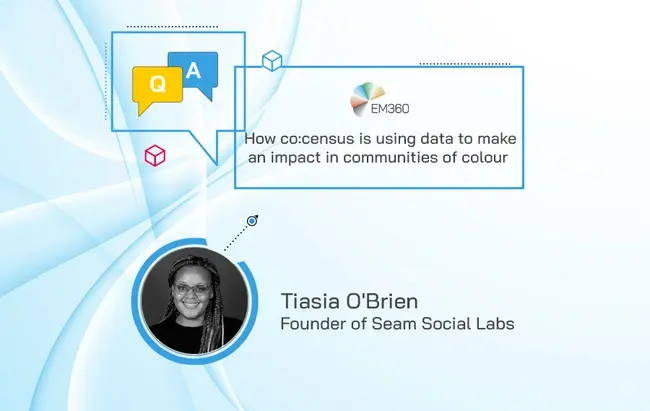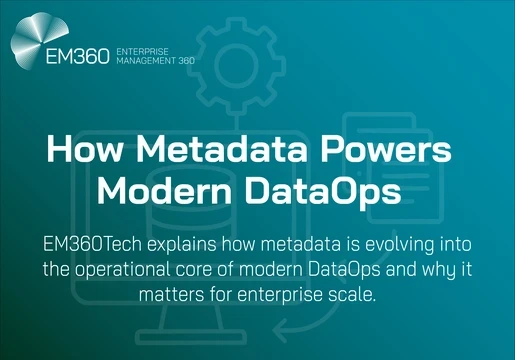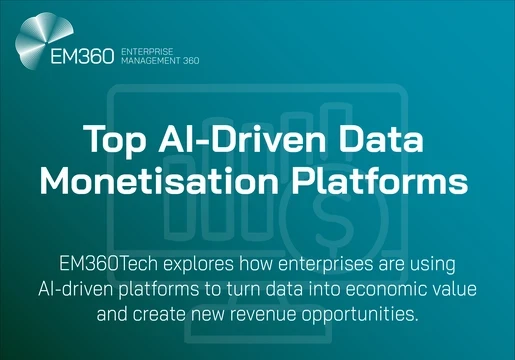In many business disciplines, data is simply what makes the world go round. However, while so many of us focus on data for business purposes, there is another perhaps more pressing use for it: data science for social good.
One woman who is spearheading data to make a positive impact is Tiasia O'Brien, the founder of Seam Social Labs. Tiasia is trailblazing data for good through her new inclusive survey and polling software, co:census, which uses data to make a meaningful impact in communities of colour. Intrigued and delighted by her initiative, I spoke to Tiasia to find out more…

Thanks so much for joining us, Tiasia! Firstly, could you tell us a little bit about yourself and your journey to Seam Social Labs and co:census?
I started Seam Social Labs over two years ago. I was at the peak of nonprofit burnout and was looking for a real solution to a major problem: how can we use community feedback as data points to help solve real social issues? I grew up in Bushwick, a Brooklyn neighborhood that has gentrified, and this was the social issue I was obsessed with.
I signed up for Graduate School, became an urban sociologist, and along that path, I started studying Harlem during the Great Migration. I stumbled upon an interesting phenomenon, the civic gap, where I saw trends with high wealth communities having a greater impact on policy outcomes. This fueled my work at Seam, and our team developed the concept for co:census ---a public engagement product that makes gathering and analyzing qualitative data easy.
So, the golden question: how is co:census using data to make an impact in communities of colour, and why is this important to you?
Our vision for the company is to build a movement where data is by the people for the people. The more we can prioritize contextual and narrative data, the more companies and government agencies can drive informed decisions by unique behaviors and attributes from communities. This distinct way that qualitative data can support quantitative data supports a more inclusive and in-depth understanding of people. This specifically supports engagement and understanding communities of color.
W.E.B. Dubois spent years researching a black neighborhood in Philadelphia during the early 1900s. The outcome was a nuanced understanding of these communities' struggles that induced more holistic issues that black communities in America face. This is why co:census means so much to me --- we have the capacity to go beyond the numbers and understand people.
Do you have any facts or statistics that demonstrate the bias or disadvantages that communities of colour and/or women face?
Well, there are various metrics around social issues and the experiences of people of color. I will specifically highlight the racial wealth gap --which has gained more awareness over the past few years. The Brookings Institute published a report that stated, “At $171,000, the net worth of a typical white family is nearly ten times greater than that of a Black family ($17,150) in 2016”. This statistic drives me to think more in-depth about stronger economic solutions for black communities in America.
How about your experience as a black female founder? What was that like?
It’s tough. Being a founder of a startup is already incredibly difficult. Being a black woman founder is often like speaking to an industry that does not understand you, cares about your demographics, and does not see your work as valid. It took two years to craft our messaging and get a network of people who fundamentally care about inclusive data and antiracism. Honestly, that has a lot to do with everything that has happened in 2020. ll, there are various metrics around social issues and the experiences
The way that you’re taking matters into your own hands is nothing short of inspirational. What’s your advice to other businesses and perhaps even industries when it comes to addressing the inclusivity and diversity problem?
Start with people --- just because you are a founder, researcher, or practitioner does not mean you understand a problem. Speak to people, hear their stories, and practice empathy. Even as a black woman, I spoke to nearly 1,000 people before our product launched. Every story mattered in providing an equitable solution because equity is not about “one size fits all”; it’s truly about finding a path for liberation by removing barriers.







Comments ( 0 )